
What is 3D printing?
3D printing is a technique used for the manufacture of three-dimensional objects with high accuracy and quality finishing in their dimensions. The technique finds applications in industries, including aviation, automotive, packaging, construction, pharmaceuticals, and food. In the food sector, 3D printing is widely investigated across areas, such as customized food designs, personalized and digitalized nutrition, simplified supply chain, and broadened source of available food material.
A 3D food printer comprises a foodgrade syringe or cartridge that holds material, a real food item, and deposits exact fractional layers through a food-grade nozzle directly onto a plate or other surface in a layer-by-layer additive manner (refer Exhibit 1). Another method is a mold-based method wherein 3D printing food machines are used to give shapes to a dough with the help of a hollow container or molding box (refer Exhibit 2). 3D printing requires hardware and software to work in collaboration. Advanced 3D food printers are equipped with userfriendly interfaces and pre-loaded recipes with designs that can be easily accessed by the computer or even with a mobile or IoT device.
There are a variety of foods manufactured using 3D printers. A few of them are listed in Table 1:
Bu hikaye Food & Beverages Processing dergisinin MARCH - 2023 sayısından alınmıştır.
Start your 7-day Magzter GOLD free trial to access thousands of curated premium stories, and 9,000+ magazines and newspapers.
Already a subscriber ? Giriş Yap
Bu hikaye Food & Beverages Processing dergisinin MARCH - 2023 sayısından alınmıştır.
Start your 7-day Magzter GOLD free trial to access thousands of curated premium stories, and 9,000+ magazines and newspapers.
Already a subscriber? Giriş Yap
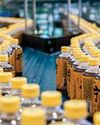
Sidel adds three high speed aseptic complete lines to CR Beverage to help expand its production of sensitive products and meet the growing market demand
CR Beverage, one of China's leading bottled water brands, has invested in three of Sidel's complete high speed aseptic complete lines to meet increased consumer demand for better quality, healthier and more eco-friendly packaging for teas, juices and carbonated drinks.

Cooling@Packing from MULTIVAC receives the Sustainable Packaging News Award
Outstanding innovation: In December the jury of the Sustainable Packaging News magazine selected the innovative Cooling@Packing System from MULTIVAC as the winner in the category for Sustainable Packaging Machinery.

Unveiling the Power of Fish Oil: A Nutritional Treasure Trove
Fish oil, extracted from the tissues of oily fish such as salmon, mackerel, and sardines, serves as a valuable ingredient in various dietary supplements and functional foods.
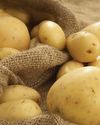
Beyond Fries and Chips Exploring the Diverse World of Value added Potato Products
India is second globally in terms of vegetable production.

Symrise unveils Symvision AIT - an Al-based multisource prediction tool for flavors, ingredients and claims
With the launch of its trend prediction tool Symvision Al™, Symrise can deliver valuable and actionable insights for food and beverage manufacturers to develop successful innovations.
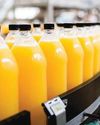
Purity and Precision: How Filtration & Separation Technologies Are Revolutionizing the Food & Beverage Industry
The food and beverage industry is built on precision, quality, and safety.

Nescafé Espresso Concentrate expands to the US: enabling consumers to create customized, café-style, cold espresso beverages at home
Nescafé, the largest coffee brand globally, is launching its first-ever liquid espresso concentrate in the US, the biggest coffee market in the world.
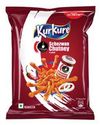
PepsiCo India and Tata Consumer Products Team Up to Launch Kurkure Schezwan Chutney Flavor
PepsiCo India has collaborated with Tata Consumer Products in the snacks space.

MorningWale Launches "Flavours of Kashmir": A Taste of Tradition and Wellness
MorningWale, a key player in India's organic food retail sector, has introduced its latest product line, Flavours of Kashmir.
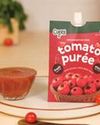
CURRYIT launches India's Only Preservative & Chemical-Free Tomato Puree
Busy kitchens across India now have a new hero-CURRYIT, one of the most loved food startups, has launched the country's first preservative and chemical-free tomato puree.
